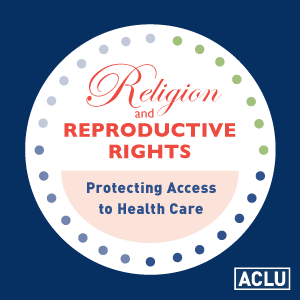By Leah Bartelt, Reproductive Rights Project
 Before the Bush administration left office, we received one last "gift" - the Health Care Denial Rule, a midnight regulation that threatens access to basic reproductive health care, including birth control and information about abortion. This rule permits health care workers to refuse to provide basic health care services - and even information and counseling about those services - if they have an objection. What's especially frustrating is that this rule it is entirely unnecessary because for years, federal law has carefully balanced protections for individual religious liberty and patients' access to reproductive health care.
Before the Bush administration left office, we received one last "gift" - the Health Care Denial Rule, a midnight regulation that threatens access to basic reproductive health care, including birth control and information about abortion. This rule permits health care workers to refuse to provide basic health care services - and even information and counseling about those services - if they have an objection. What's especially frustrating is that this rule it is entirely unnecessary because for years, federal law has carefully balanced protections for individual religious liberty and patients' access to reproductive health care.
We're happy to report that the new administration has taken the first step in restoring the careful balance between individual religious liberty and access to reproductive health care by proposing to rescind this rule. Let the administration know that we support this change by sending in comments on the proposal.
When the Health Care Denial Rule was first proposed, more than 40,000 ACLU supporters across the country took action through the Action Center to tell the Bush administration not to take this damaging action. Now the new administration needs to hear from you too! Comments in support of the rescission are critical to changing the law. Read more about the regulation, and send in a comment in support of women's access to basic reproductive health care and information. Comments are due by April 9th, so take action now!